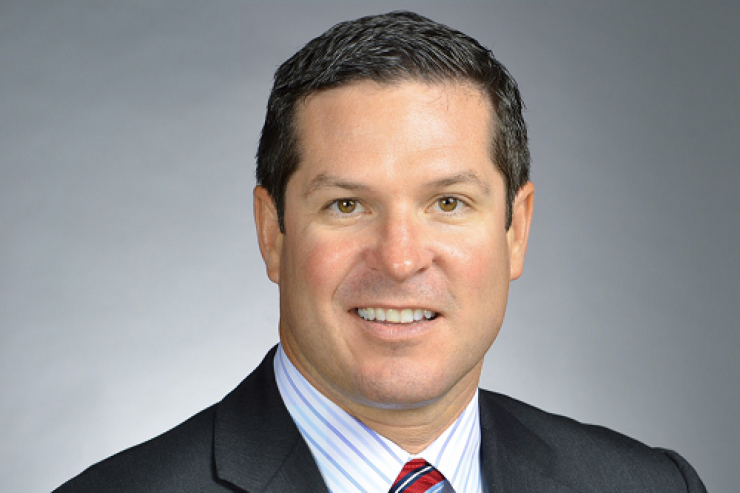
Brian Kovack of Kovack Securities is running on a platform of reform for the mid-sized firm spot on FINRA's Board of Governors and, if elected, said his main role would be to advocate for brokers.
When asked if he would represent investors' interests in the position, his answer was succinct.
"No. I would not," says the co-founder of his eponymous independent broker-dealer and the endorsed candidate of the Financial Services Institute, which says it represents independent financial services firms and independent advisors.
The first of its
When pressed to explain how any board member could omit this role, he says, "Obviously, FINRA as a whole has, as part of its mission, protecting the integrity of the markets and protecting investors."
However, critics say it's far from obvious that FINRA can make good on this claim, given that FINRA is run by the very firms it regulates.
WHEN BROKERS, CLIENTS CLASH
"Many people are concerned that because of the way FINRA is structured and because of the way it's funded and the way its board of governors are elected that this governance model causes FINRA to behave differently than it would if it were a purely governmental agency," says Benjamin Edwards, incoming assistant professor of law at Barry University's Dwayne O. Andreas School of Law.
As a result, he says, many fear that "FINRA does not always act as effectively as it could to protect investors particularly in instances where the interests of brokers and investors conflict."
FINRA did not immediately respond to requests for comment.
At its July 30 meeting, FINRA plans to elect three new members to its 24-member board, one representing small B-Ds, one for medium-sized ones and one for large firms.
Kovack, who began his career as a securities lawyer, submitted enough signatures to run as a "dissident" candidate in the medium category which includes firms that employ 151 to 499 "registered persons." He is vying for the vacant seat against John Muschalek, vice chairman of First Southwest Company. Muschalek was not available for comment.
John Thiel, head of Merrill Lynch Wealth Management, is the sole candidate for the large firm category. Two candidates are vying for the small-firm category: Stephen Kohn, president of Stephen A. Kohn & Associates, and Joe Romano, president of Romano Wealth Management.
'FRIVOLOUS' CLAIMS
If elected, Kovack says he would focus on implementing regulatory reforms.
For example, he thinks that FINRA arbitrators should be able to throw out "frivolous" claims against firms.
In federal and state courts, by contrast, judges can throw out claims that they deem to not have merit.
No such mechanism exists in arbitration, he says.
This means any investor can file a complaint at minimal cost, alleging losses ranging from a few thousand dollars to millions, he adds. And the minimal cost for a firm to begin defending itself starts at around $3,000 and rises to $10,000 for larger monetary damages, he says.
"As a firm, you don't have the option of an effective manner of a motion to dismiss," Kovack says. "You don't have an effective tool in frivolous cases to seek attorney fees from the claimants. The client doesn't have a whole lot of risk and has a whole opportunity for reward."
FINRA's dispute resolution task force, formed last year, already has identified this area as one in need of reform, Kovack says, adding that he would support the right changes.
VETTING ARBITRATORS
He also thinks brokers and brokerages should not have to go through the time-consuming process of reporting every lien that's ever been reported against each of its brokers to FINRA, he says.
In some cases, the liens stem from disputes from as far back as brokers' college years, such as an argument with a restaurant over the size of a bill.
He also thinks FINRA should invest in doing independent evaluations of arbitrators rather than leaving this due diligence to the attorneys representing both sides of a dispute. Past news accounts have reported instances in which long-standing arbitrators turned out to have lied about their credentials.
Kovack has served for years as a FINRA arbitrator, held past FINRA positions and represented his firm in FINRA disputes.
Like many past FINRA board members, his firm has paid out multiple settlements to clients over the years, according to FINRA's BrokerCheck, though no fines.
When asked if he thought any of those cases filed against his firm were frivolous, he said, "At any given time with a bad market such as in 2008, certainly, we have seen corresponding increases in upset clients who file cases for litigation."
Read more:
-
Why FINRA's Broker-Comp Rule Works for Advisors -
FSI Warns on DoL Fiduciary, FINRA CARDS Rules -
FINRA Chief Pans DoL Fiduciary Proposal -
DoL Adding 15 Days to Comment Period on Fiduciary Proposal





